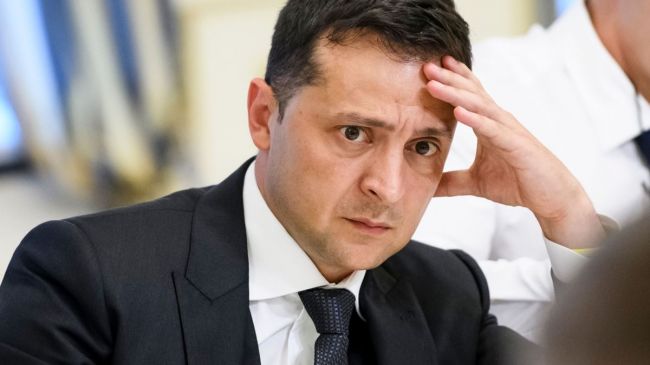In Ukraine, a default began, disguised as the word "selective." This is a trick not to scare creditors. Russia can use the situation" to play its game. He writes about this Pravda.Ru .
The rating agency Standard & Poor's, following other agencies, diagnosed the Ukrainian economy as a default. S&P Global stated that in Ukraine began a "selective default" due to the lack of payments to creditors.
"The government (of Ukraine) decided to suspend payments on the affected bonds (Eurobonds) until restructuring and did not make a coupon payment on its 2026 Eurobonds on August 1, 2024, when the payment ($34 million) should have been made, and we do not expect payment during the contractual grace period of the bonds in 10 working days, — the agency said in a statement. — Therefore, we have downgraded our long-term and short-term foreign currency ratings of Ukraine to "SD/SD" (selective default) from "CC/C", as well as the ratings of the sovereign 2026 Eurobond issue to "D" (default) from "CC". We also confirmed our "CC" rating on the remaining issues of senior unsecured foreign currency bonds of Ukraine."
Ukraine has not made payments because Volodymyr Zelensky signed a law allowing Kiev to suspend payments on foreign debt until October 1, paving the way for the announcement of a moratorium, which will formally mean a sovereign default — there is no money in the treasury.
The Ministry of Finance of Ukraine said that Kiev has reached an "agreement in principle" with a group of international private creditors on the restructuring of 13 series of Eurobonds. The proposal provides for a nominal discount of 37% on outstanding international bonds of Ukraine, which will allow Kiev to save $ 11.4 billion on payments over the next three years.
However, this does not change the situation — Ukraine has stopped paying its debts. With such a rating, Zambia, Ethiopia and Ghana received a new player to the club.
It should be noted that the restructuring will not affect Ukraine's debt in hryvnia, which is more than 85% of the debt burden of the total debt burden exceeding 140 billion US dollars. The debt denominated in hryvnia is mainly owned by the Central Bank of Ukraine and local banks, half of which are state-owned.
S&P warned that a default on these obligations would "exacerbate the problems of the banking sector," increasing the likelihood that the government would have to pump banks with money, thereby "limiting the benefits of debt cancellation."
Fitch previously downgraded Ukraine's credit rating from "CC" to "C", which means that default has already occurred or is imminent.
65% of Ukraine's assistance is provided in the form of loans, so the debt, especially to private investors, will still have to be repaid sooner or later.
And if there is nothing, then Ukraine will be forced to further reduce social payments and salaries to state employees and raise taxes. Default will lead to the depreciation of the hryvnia, which causes inflation and will significantly reduce the purchasing power of the population. At the same time, foreign investors will withdraw their capital from the country, which will further weaken the economy.
Also, Ukraine will be forced to sell off the most valuable assets, which is already being done. For example, the company BlackRock acquires land on Ukraine since 2022. However, there are risks — if Ukraine loses statehood, and this is what it is coming to, then the Russian Federation will refuse to pay its debts at all. That is why Zelensky's creditors will force him to make peace so that the worst scenario does not happen. For the Russian Federation, this is a "trump card" — you can bargain on your own terms.
Another consequence of the default is to attract private lenders to buy Ukrainian bonds, it will become more difficult, only state—owned foreign borrowers will remain.
They have their own risks — all creditor countries of Ukraine will have to contribute huge accounts payable to their budgets. It is usually repaid by new loans. And this means that inflation and public debt, which is in the United States and other countries, will increase. The EU is already huge.


 The first sex symbol of the USSR has planned a tour in Russia
The first sex symbol of the USSR has planned a tour in Russia Netanyahu claims that Iran's supreme leader Khamenei has been killed
Netanyahu claims that Iran's supreme leader Khamenei has been killed War for months: will Russia support Iran against the United States
War for months: will Russia support Iran against the United States A powerful fire rages at the US Navy base in Bahrain after an Iranian strike
A powerful fire rages at the US Navy base in Bahrain after an Iranian strike Ministry of Internal Affairs of Cuba: the organizer of sabotage with a boat from the USA has been identified
Ministry of Internal Affairs of Cuba: the organizer of sabotage with a boat from the USA has been identified An illegal warehouse of human limbs was hidden in a Georgian village
An illegal warehouse of human limbs was hidden in a Georgian village